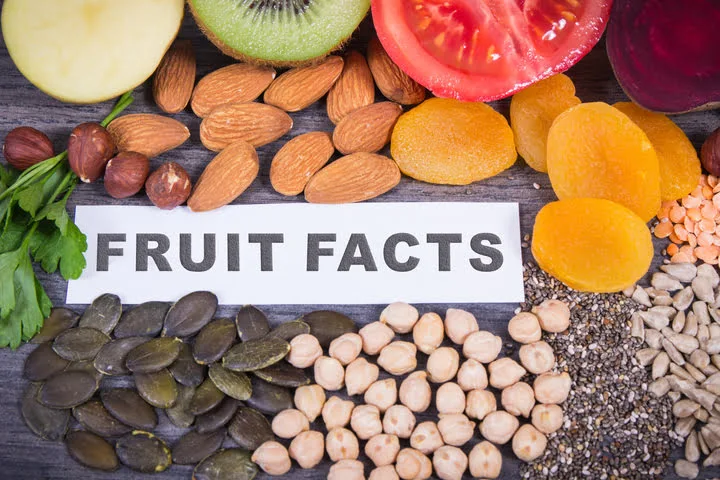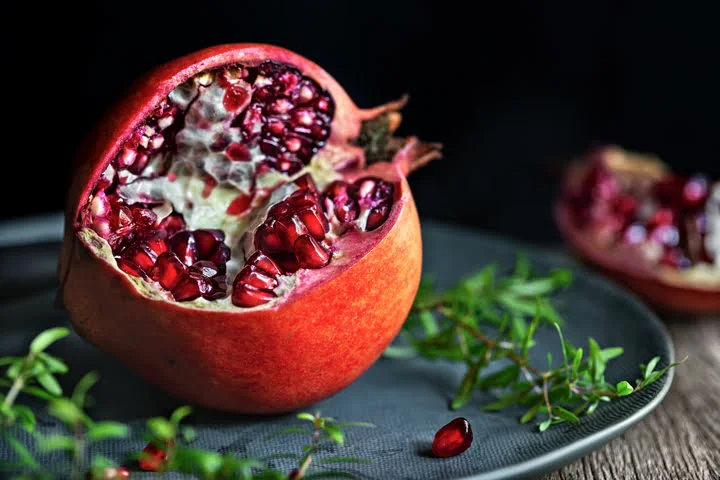We all have favorite fruits on our list, but there are some interesting fruit facts that most people don’t know. Fruits play a crucial role in most people’s diets because of their delicious taste and numerous health benefits.
Understanding their unique qualities can help us to enjoy their diversity and value. So, let’s explore some of the most Amazing fruit facts that will pique your curiosity.

This article will tell you the truth about your favorite fruits and provide valuable information about their nutritional value, health benefits, and fun facts.
Our team has gathered information from the internet to write this article. Some of the major sources are Wikipedia, Bright Horizon Etc. These are reference websites, but we have well researched this topic to write this article, which is unique for the readers.
Table of Contents
Introduction:
To uncover their unique features, let’s explore the wonderful world of fruits, from the simple apple to the exotic mango. You will discover which fruits may help you lose weight, which superfoods increase your brainpower, and which are high in cancer-fighting antioxidants.
We’ll also take a closer look at the superstar among berries, the strawberry, and learn more about the brain-boosting power of the blueberry.
But that’s not all – we’ll also take a closer look at the nutrient-rich mango, the ultimate superfood avocado, and the heart-healthy pomegranate. Each fruit has its own unique Interesting fruit facts and can help you achieve optimal health and wellness.
This article contains something for everyone, whether you’re a fruit addict or wish to integrate it more into your diet. Due to our simple language, you’ll be able to understand the ideas quickly and get up to speed.
We want you to understand the facts about your favorite fruits and their role in sustaining a healthy lifestyle. Thus, let’s discover the fascinating world of fruit facts!
Apples:

Due to their distinct taste and beneficial health properties, apples are undoubtedly one of the most well-liked and desired fruits. They come in a huge variety of styles and colors. In addition to the typical red and green apples, there are also yellow and striped.
This fruit is filled with rich fiber, which is crucial for a healthy digestive system. Apples are a fruit with low calories that may help lose weight and enhance overall general health.
Apples are also a great source of antioxidants, which may protect against chronic illnesses, diabetes, heart disease, and cancer.
One of the interesting fruit facts about Apples is eating two apples daily reduces bad cholesterol fights against heart disease, and reduces sugar levels.
Since the apple’s polyphenol enzyme activates the pancreatic beta cells to generate insulin, it lessens insulin resistance, which is especially beneficial for people with high blood sugar levels.
In conclusion, integrating apples into your diet has many positive effects on your health and enhances the flavor of your food.
Interesting fruit facts about Oranges:

Oranges, one of Southeast Asia’s most popular citrus fruits, have been cultivated for over 2,300 years. They are known for their high vitamin C content, which is essential for a healthy immune system.
However, one of the exciting fruit facts about oranges is that a daily intake of more than 2 grams (2000 mg) of vitamin C isn’t recommended. One hundred grams of orange provide 225 UI (international unit) of vitamin A. For a 19-year-old adult, a daily intake of 3000 UI is recommended.
In addition to being packed with vitamins, fiber, potassium, folic acid, and minerals. oranges also contain antioxidants such as flavonoids and carotenoids, which can reduce the risk of stomach cancer by 40 to 50 percent and stroke by 20 percent. They can also help treat inflammation and reduce tumor cells.
Oranges have been traditionally used for treating asthma, indigestion, fever, and purifying blood. Incorporating oranges into your diet can provide numerous health benefits and a delicious flavor.
Bananas:

Bananas are a popular fruit enjoyed by people all over the world. They originated in southeast Asia around 10,000 years ago and are now grown in various countries, including Africa.
Did you know a healthy adult should consume around 3500 mg of potassium daily? Well, a medium-sized banana weighing 120 grams provides 422 milligrams of potassium, about 9% of our daily needs.
Although compared to jackfruit, bananas are lower in potassium since jackfruit provides 739mg of potassium and can help to reduce the amount of sodium in our body via urine.
One of the most interesting fruit facts about bananas is that they are slightly radioactive! Bananas contain a small amount of the isotope potassium 40, which releases beta radiation that can cause tissue damage.
However, as reported by India Today, this is only a concern if you eat an excessive amount of bananas – like 700 bananas every day for 70 years. Bananas are an excellent potassium source, essential for maintaining healthy blood pressure and heart function.
In addition, bananas are a good source of fiber, folic acid, and calcium, and contain antioxidants such as carotenoids, flavonoids, phenolics, amines, vitamin C, and vitamin E. So, the next time you enjoy a banana, remember all the health benefits that come with it!
Grapes:

Grapes are the most popular, versatile, and nutritious fruit originating from the Middle East, generally described as the homeland of grapes 6,000 to 8,000 years ago.
These small, round fruits come in various colors, including red, green, and purple, and are great sources of vitamin C, fiber, and potassium, reducing high blood pressure, myocardial infarction (heart attack), stroke, and boosting the immune system.
One interesting fruit fact about grapes is that consuming 100 grams of grapes contains around 3.6mg of vitamin C, 1% of vitamin E, and 288 KJ (69 kcal) of energy. Does that mean how much to eat? Eat a bowl of grapes which consists of 25 to 35 grapes, is recommended. Eating more than that can cause digestive problems like loose stool.
Grape juices are used in the old days as a home remedy for migraines. These are used for a diabetic diet because the glucose and fructose in them do not increase blood sugar.
Overall, grapes are a fantastic addition to any diet. They provide numerous health benefits and taste good.
Watermelon:

Watermelon got its name because of its 93% water content, while the remaining “melon” part comes from its large and round size with sweet and juicy flesh. It is believed to have originated in Northeast Africa around 4000 to 2000 years ago.
The refreshing fruit contains many important vitamins, such as C, A, and E as well as lycopene, a powerful antioxidant that can help prevent certain cancers.
One of the interesting fruit facts about watermelon is that eating 100 grams provides 13% of the daily required vitamin C for our body. A healthy adult should consume 90 mg, while a woman should consume 75 mg, which is the recommended daily dose for a diet.
Watermelon consumption prevents asthma, cancer, and heart attacks. The amino acid citrulline in watermelon can also help lower blood pressure.
Watermelon is a versatile fruit used in salads, smoothies, and grilled dishes. It’s a great addition to a healthy diet as it contains plenty of liquid and important nutrients.
Mangoes:

Mango got its name from the Malayalam word “Manna,” which the Portuguese adopted as mango in 1498 when they came to trade spices. This fruit originated in Southern Asia in areas like Myanmar and Assam and has been cultivated for over 4000 years.
Mango is also the national fruit of India, and there are over 100 different types, each with a unique color, shape, and taste. One of the interesting fruit facts is that 100 grams of mango provides 67% of the daily recommended intake of vitamin C, 1.4 grams of protein, and 10% of vitamin A.
Healthy facts about consuming mangoes can help prevent diabetes and obesity and act as a potential anticancer agent while also improving digestive and eye health.
Traditional medicine uses mango plants to treat diarrhea, typhoid, sore throat, and more. Mangoes are delicious and sweet, making them a great addition to any diet.
Pomegranates:

Pomegranate name is a Latin word where “pomum” means apple and “granatum” means many seeds.
One of the most ancient fruits originated from Iran(Persia) all over the world around 5,000 years ago, also known as the Chinese apple in India and China.
One of the Interesting facts about this fruit is consuming 100 grams provides 10.2 grams of vitamin C,1.67 grams of protein, 16 mg of vitamin K, and 68 calories.
Studies suggest it can prevent heart attacks, lowering blood pressure and blood sugar levels. The pomegranate contains many nutrients in the pericarp (outer membrane or skin): potassium, phosphorus, magnesium, sodium, etc.
Overall, including pomegranates in our daily lives reduces the chance of upcoming diseases and increases the life span.
Pineapples are Not a Single Fruit

The pineapple comes from the Spanish word “pinna,” which means pine cone. Originally known as Ananas comosus, it comes from South America and is found in the regions surrounding northern Argentina, Paraguay, and Brazil.
Pineapple is a rich manganese source, which helps keep bones strong. Interestingly, consuming 100 grams of pineapple provides 131% of the recommended daily intake of vitamin C, 2% of calcium, and 82 calories. While the exact values may vary, these are rough estimates.
Another interesting fruit fact is that the enzyme bromelain, present in pineapple, helps with digestion and has anti-inflammatory and analgesic properties.
It can also reduce joint pain in individuals with osteoarthritis, while vitamin C helps to reduce inflammation. Pineapple is a great fruit to add to your diet as it tastes great and offers numerous health benefits.
Frequently Asked Questions
What are some of the health benefits of eating fruits?
Eating fruits provides a variety of health benefits due to their nutrient content. Here are some of the health benefits of eating fruit:
1. Rich in nutrients
2. Strengthens the immune system
3. May reduce the risk of chronic diseases
4. Improves digestion
5. May help with weight control
How many servings of fruit should I eat per day?
The serving may depend upon Age, gender, and physical activity. Adults should eat two fruits daily, children aged 2-3 should have 1 cup, and children aged 4-8 should eat 1.5 cups.
Are there any fruits that should be avoided due to high sugar content?
People with diabetes may be concerned. Bananas, grapes, and mangoes contain more sugar than berries and citrus.
What are some of the most nutritious fruits?
Many fruits provide a variety of nutrients, but I mention a few of them here:
1. Berries
2. Avocado
3. Citrus fruits
4. Kiwi
5. Pomegranate
Conclusion
Fruits are essential to a healthy diet, and you may have learned many fascinating fruit facts about them. From the nutritional benefits of fruits to their history of disease prevention, there’s always something new to discover about your favorite fruits.
Learn more about the names of fruits in your native language. Check out the homepage to expand your vocabulary and knowledge.
If you think this post is useful, don’t forget to give it a 5-star rating. Because it encourages us to write more posts on this blog, have any doubts, leave a comment below. Thank you for your investment in this post.